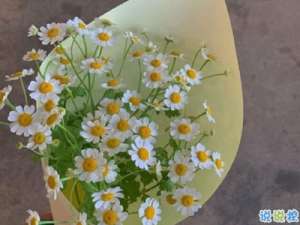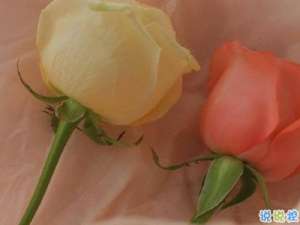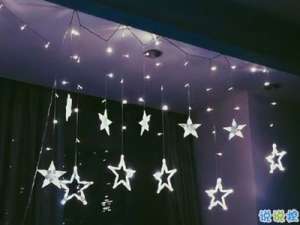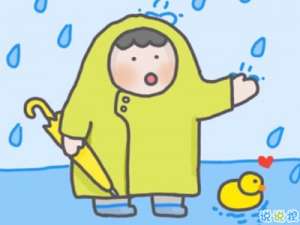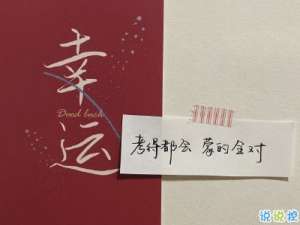带老人家过年好吗英文

带老人家过年是一件好事吗?
Spring Festival usually falls in January or February, when families gather together to celebrate. It is a time of joy and reunion for everyone. However, there is a question that many people often ask: is it a good idea to bring older family members along to celebrate the Lunar New Year?
Bringing older family members to celebrate the Spring Festival has its benefits. Firstly, it allows the younger generation to express their filial piety and respect for their elders. It is a tradition deeply rooted in Chinese culture to show reverence for one\'s parents and grandparents, and bringing them along is a way to honor and cherish their presence.
Moreover, celebrating the Spring Festival with older family members creates an opportunity to bridge the generation gap. It allows for the exchange of wisdom, stories, and experiences between different generations. The older family members can share their traditional values and customs, passing down cultural heritage to the younger ones.
On the other hand, bringing older family members to celebrate the Spring Festival may also have challenges. For example, it requires careful planning and consideration in terms of their health and mobility. Elderly individuals may have specific dietary restrictions or physical limitations that need to be taken into account. It is important to create a comfortable and accommodating environment for them during this time.
However, despite the challenges, the benefits of bringing older family members to celebrate the Spring Festival outweigh the drawbacks. It is a time for family unity and strengthening bonds. The joy and happiness of celebrating together can create precious memories for everyone involved. Additionally, it is an opportunity to show love and care for our elders, ensuring that they feel valued and included in the festivities.
In conclusion, bringing older family members to celebrate the Spring Festival is indeed a good thing. It allows for the expression of filial piety, the passing down of cultural heritage, and the strengthening of family bonds. While there may be challenges involved, the positive impact on the overall well-being of the family is immeasurable.
除了食物还有什么准备可以让老人家过年更加开心?
La primavera è la mia festa preferita, perché ci siamo riuniti insieme la famiglia. Capodanno cinese porta gioia e felicità non solo attraverso il cibo, ma anche attraverso la tradizione delle nuove vesti.
During the Spring Festival, apart from the delicious food, there is another important preparation that can bring joy and happiness to older family members: new clothes. It is a long-standing tradition for parents to prepare new clothes for their children before the Lunar New Year. This tradition symbolizes a fresh start and the hope for better fortune in the coming year.
For older family members, receiving new clothes can evoke a sense of nostalgia and excitement. It reminds them of their own childhood and the anticipation they felt when receiving new clothes for the Spring Festival. It can also make them feel loved and cared for, as the younger generation continues the tradition of preparing new clothes for them.
Additionally, wearing new clothes during the Spring Festival can enhance the festive atmosphere and boost the overall mood. It brings a sense of renewal and rejuvenation, as everyone dresses up in their best attire to welcome the new year. It is a visual representation of the joy and celebration that comes with the Lunar New Year.
In conclusion, apart from the food, preparing new clothes for older family members can bring additional joy and happiness to the Spring Festival. It is a tradition that carries sentimental value and helps create a festive atmosphere. It provides older family members with a sense of connection to the past and a feeling of being cherished in the present.
怎样用英文描述人们过年的方式?
People usually spend time with their families during the Spring Festival. It is a time of reunion and celebration. While the specific customs and traditions may vary across different regions and families, the essence of the celebration remains the same.
During the Spring Festival, families come together to share meals, exchange gifts, and participate in various activities. The preparation for the Lunar New Year starts weeks in advance, with thorough cleaning of houses and purchasing of festive decorations. This is believed to sweep away the bad luck of the previous year and welcome good fortune.
One of the most important traditions during the Spring Festival is the reunion dinner on New Year\'s Eve. Families gather around the table to enjoy a feast of traditional dishes, symbolizing prosperity and abundance. It is a time for laughter, storytelling, and reminiscing about the past year.
Another popular custom during the Spring Festival is the giving and receiving of red envelopes, known as \"hongbao\" in Chinese. These red envelopes contain money and are given to children, unmarried adults, and elderly family members. It is a gesture of good luck and blessings for the coming year.
Fireworks and firecrackers also play a significant role in celebrating the Spring Festival. The loud noises and bright lights are believed to scare away evil spirits and bring good fortune. It is a spectacle that fills the streets with excitement and joy.
In conclusion, the Spring Festival is a time for families to come together and celebrate. It involves various customs and traditions that symbolize good fortune, prosperity, and unity. Whether it is the reunion dinner, the giving of red envelopes, or the lighting of fireworks, each tradition adds to the joy and festive atmosphere of the Lunar New Year.
春节及其文化背景的英语解释
The term \"Spring Festival\" in English refers to the traditional Chinese festival known as the Lunar New Year. It is an important holiday celebrated by Chinese people around the world. In Chinese, it is called \"Chun Jie\" (春节), which literally means \"Spring Festival\".
The Spring Festival is based on the lunar calendar and usually falls between January and February. It marks the beginning of the Chinese zodiac year, with each year being represented by one of the twelve animal signs. The festival is steeped in rich cultural traditions and customs that have been passed down through generations.
During the Spring Festival, Chinese communities come alive with vibrant celebrations. Red is the dominant color, symbolizing good luck and happiness. Streets and houses are adorned with red lanterns, couplets, and other decorations. There are dragon and lion dances, traditional performances, and various festive activities taking place.
One of the key cultural practices during the Spring Festival is the concept of \"family reunion\". It is a time when family members from near and far come together to celebrate. The reunion dinner is a highly cherished tradition, where generations gather around the dining table to enjoy a sumptuous feast and exchange greetings.
Other customs associated with the Spring Festival include visiting relatives and friends, giving and receiving red envelopes, setting off fireworks and firecrackers, and watching the CCTV New Year\'s Gala. Each custom holds its own significance and adds to the festive spirit of the Lunar New Year.
In summary, the Spring Festival is a culturally significant holiday that marks the beginning of the Chinese zodiac year. It is a time of family reunion, cultural traditions, and joyful celebrations. The festival\'s customs and rituals reflect the rich cultural heritage and values of the Chinese people.
回答他人新年祝福的英文表达方式
1. A: Happy New Year! - B: The same to you! When someone wishes you a happy new year, the appropriate response is to reciprocate the same well-wishes. It shows politeness and acknowledges the person\'s kind gesture.
2. Best wishes and a Happy New Year for your father, mother, and brother. When someone extends their New Year greetings to your family members, it is considerate to thank them and wish the same blessings for their loved ones.
3. May the coming year be filled with joy, prosperity, and good health for you and your family. Responding with a thoughtfully crafted message that conveys well-wishes for the person and their family demonstrates sincerity and goodwill.
In conclusion, when responding to someone\'s New Year wishes in English, it is important to reciprocate the kind sentiment and extend blessings to their loved ones as well. This promotes positive interactions and strengthens the spirit of celebration and camaraderie during the holiday season.
新年到了,每个家庭都会相聚在一起过年。当然,还要放烟花欢迎新年的到来。
1. New Year arrives, and every family gathers together to celebrate. Of course, we also indulge in the joy of setting off fireworks to welcome the arrival of the new year. Fireworks are an integral part of the Spring Festival celebrations, illuminating the night sky and symbolizing the joy and hope associated with a fresh start.
2. The Spring Festival is a time when loved ones come together to bond and create beautiful memories. It is a cherished tradition for families to gather under the same roof, enjoying each other\'s company and partaking in delicious festive meals. The atmosphere is filled with laughter, love, and the excitement of setting off fireworks to mark the beginning of a prosperous year.
我妈妈在春节非常忙,她要带我去爷爷奶奶家、做饺子,放烟花等等。
My mom is exceptionally busy during the Spring Festival. She takes me to visit my grandparents\' house, where we engage in various activities such as making dumplings, setting off fireworks, and more. It is a time of bustling energy and joyful chaos as families come together to celebrate and create lasting memories.
新年好的英文表达
Happy New Year to you! The phrase \"Happy New Year\" is a straightforward and commonly used expression to wish someone a joyful and prosperous new year. It encapsulates the well-wishes and excitement associated with the beginning of a fresh calendar year.
Happy, in this context, signifies a state of joy and contentment. It represents the optimistic outlook that many people have when starting a new year, filled with hope and excitement for what lies ahead.
New Year, on the other hand, refers to the specific occasion being celebrated. It signifies the transition from one year to the next, leading to a host of fresh opportunities and possibilities.
In conclusion, the phrase \"Happy New Year\" is a simple yet effective way to convey well-wishes and positive energy to someone during the festive season.
用英文描述春节期间拜年和收红包的习俗
During the Spring Festival, it is customary to visit friends and relatives and exchange New Year greetings. This practice is known as \"bai nian\" in Chinese and symbolizes good luck, prosperity, and unity.
When visiting friends and relatives, it is common to present red envelopes containing money as a gesture of goodwill and blessings for the upcoming year. The act of giving and receiving red envelopes, known as \"hongbao,\" is considered auspicious and brings good luck to the recipients.
Red envelopes are traditionally given to children, unmarried individuals, and elders. The amount of money inside the red envelope is usually an even number, as odd numbers are associated with mourning and are considered inappropriate for such occasions.
The handing out of red envelopes is accompanied by words of well-wishes and blessings, such as \"Gong Xi Fa Cai\" and \"Xin Nian Kuai Le,\" which mean \"Happy New Year\" and \"Wishing you a prosperous new year\" in English respectively. These greetings are expressions of joy and prosperity, reflecting the celebratory atmosphere of the Spring Festival.
In summary, the Spring Festival is a time when people engage in the tradition of bai nian, visiting friends and relatives to exchange New Year greetings. Red envelopes, filled with money, are given as a symbol of good luck and blessings. The practice of bai nian and the giving of red envelopes contribute to the festive and joyful atmosphere of the Lunar New Year celebration.







